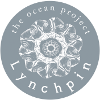Living Data
Blog Archive 2015
BLOG ARCHIVE
2011
2012
2013
2014
2015
"It is because science grows out of the preoccupations and pressures of everyday life
that its discoveries have, in the end, to be accessible to all of us."
Lisa Jardine, 1999. Ingenious Pursuits:
Building the Scientific Revolution p.8
Posted on 2015/01/11 by Lisa Roberts
With backgrounds in engineering, biology, and philosophy, scientist Sam Laney investigates what life is like for phytoplankton cells as individuals, and how they adapt to rapidly changing conditions. He says,
I did an experiment with colleagues Rob Olson and Heidi Sosik where I made time-lapse movies of diatom cells dividing generation after generation. I wrote software to keep track of individual cells in these movies. We just published our study in the September 2012 issue of Limnology and Oceanography, and we showed that the smaller of the two diatom daughters typically inherits more of its parent's cellular material (or cytoplasm), and that they subsequently grow faster and divide sooner than their larger sisters. It looks like diatoms "favor" the younger daughters somehow. This is the first time this has been shown in diatoms, that the parent cell actually favors one daughter over its sister. Other studies suggest it's true in bacteria as well, and so maybe this type of favoritism is a more universal feature in microbes. That could have significant ecological implications...
When I first started thinking of phytoplankton from an engineering perspective, I thought about them as little computers, asking questions such as: What's their algorithm for dealing with changes in life? Now it's more like phytoplankton as "dynamical systems," which is how an operations engineer might think of this problem of keeping light energy flowing smoothly through a cell...
Anybody who has studied the philosophy of science will tell you that you can never prove anything; you can at best only disprove something. Having that liberal arts background helped me perk my ears up to these types of ideas. For me, science isn't for answering questions; my job is to make questions!
Read more in A Day in the Life of a Phytoplanktor:
http://www.whoi.edu/oceanus/feature/a-day-in-the-life-of-a-phytoplankter
Posted on 2015/01/07 by Lisa Roberts
Living Data's Draw What You Saw workshop for the 2014 Biolblitz at the World Congress at Sydney's Olympic Park last November inspires some memorable drawings. Children and adults come to see, move amongst and (sometimes) touch weird and wonderful life forms and their habitats. There's a lot of feeling in the drawings. This shows that we know things more than by name, date and location. What makes observations memorable is when we express the experience.











